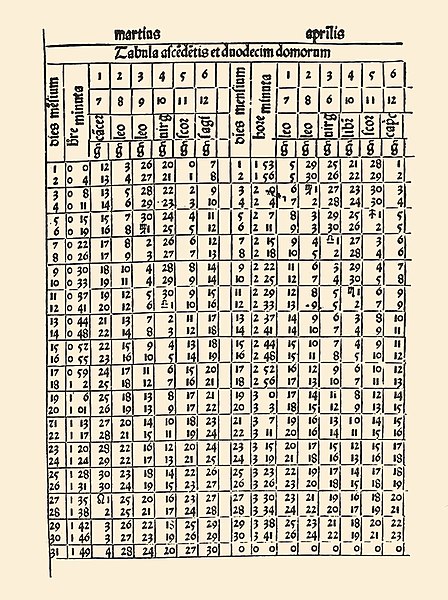In astronomy and celestial navigation, an ephemeris is a book with tables that gives the trajectory of naturally occurring astronomical objects as well as artificial satellites in the sky, i.e., the position over time. Historically, positions were given as printed tables of values, given at regular intervals of date and time. The calculation of these tables was one of the first applications of mechanical computers. Modern ephemerides are often provided in electronic form. However, printed ephemerides are still produced, as they are useful when computational devices are not available.
Alfonsine tables
Page from Almanach Perpetuum
Celestial navigation, also known as astronavigation, is the practice of position fixing using stars and other celestial bodies that enables a navigator to accurately determine their actual current physical position in space or on the surface of the Earth without relying solely on estimated positional calculations, commonly known as dead reckoning. Celestial navigation is performed without using satellite navigation or other similar modern electronic or digital positioning means.
Ships Marine Chronometer giving an accuracy of less than ±5 seconds per year, French Navy issued, 1980
U.S. Navy quartermaster 3rd class, practices using a sextant as part of a navigation training aboard the amphibious assault ship USS Bonhomme Richard, 2018.




